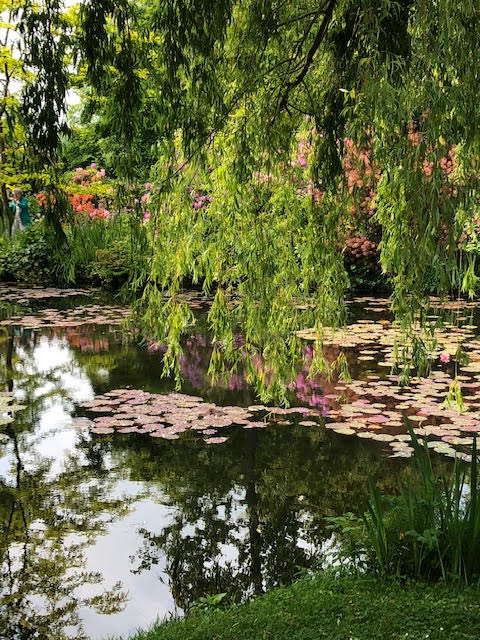Four minutes.
That is how long Claude Monet had to capture natural light, in any given moment, before the speed of the earth’s rotation inched the light ever slightly to the west, and changed the hue of the colors, the length of the shadows, and the fickle reflections of his lily pond or the Seine River.
He chased that light, obsessed over that light, and structured his entire life painting that light at nearly every incremental moment that it tracked across the heavens. In this way, Monet became a chronicler of moments, a landscaper of time. By working feverishly and forever in his tiny four-minute increments, his paintings became, in effect, a statement of presence, lining up along the gallery wall, immersing us in whatever moment that Monet chose to immerse us in.
And then there is us, most of us non-artists, non-painters, but born with the same capability of dealing with time, and the same creative genetics as every master you have ever heard of.
Yet, we shunt our creative genius back to the base of our skull where the work week lives for most of us. Here is where risk management (a business way to say “fear”) or threat aversion (real or imagined) lives. Here is where the genetically engineered survival of the fittest “kill or be killed” creature hides. This is the time and place where we try to think way ahead, cut that guy off before he cuts us off, position ourselves for advancement, save for the kids’ college, the new boat, retirement, or a new watch to track all the time we are thinking ahead.
And when we aren’t thinking forward, we are usually thinking backward, still at the base of our brains, in lizard time, rehashing the past, mourning our life’s losses, settling old scores, rewriting our life’s narrative in just a bit of a self-serving way, or beating ourselves up over the crap we’ve caused ourselves.
Then four minutes pass, and we miss it, that perfect shadow over the wisteria vine, or the golden beam of sunshine racing over the back porch just as the cool breeze of evening brushes the back of our neck.
If we worked on just paying attention, for even a little while on what is going on in front of us right now, if we moved our sense of time and space forward in our brain to that spot above our eyes where our genius waits, then maybe we could hear music in the office chatter, notice the miracle of heat waves bouncing off the hoods of cars in traffic, smell the coffee with such a deep inhale that we could smell it with our toes.
If we could become chroniclers of our own moments, we could create a real masterpiece out of our lives, a real thing of beauty to behold, even as the light constantly changes forever above our heads.
